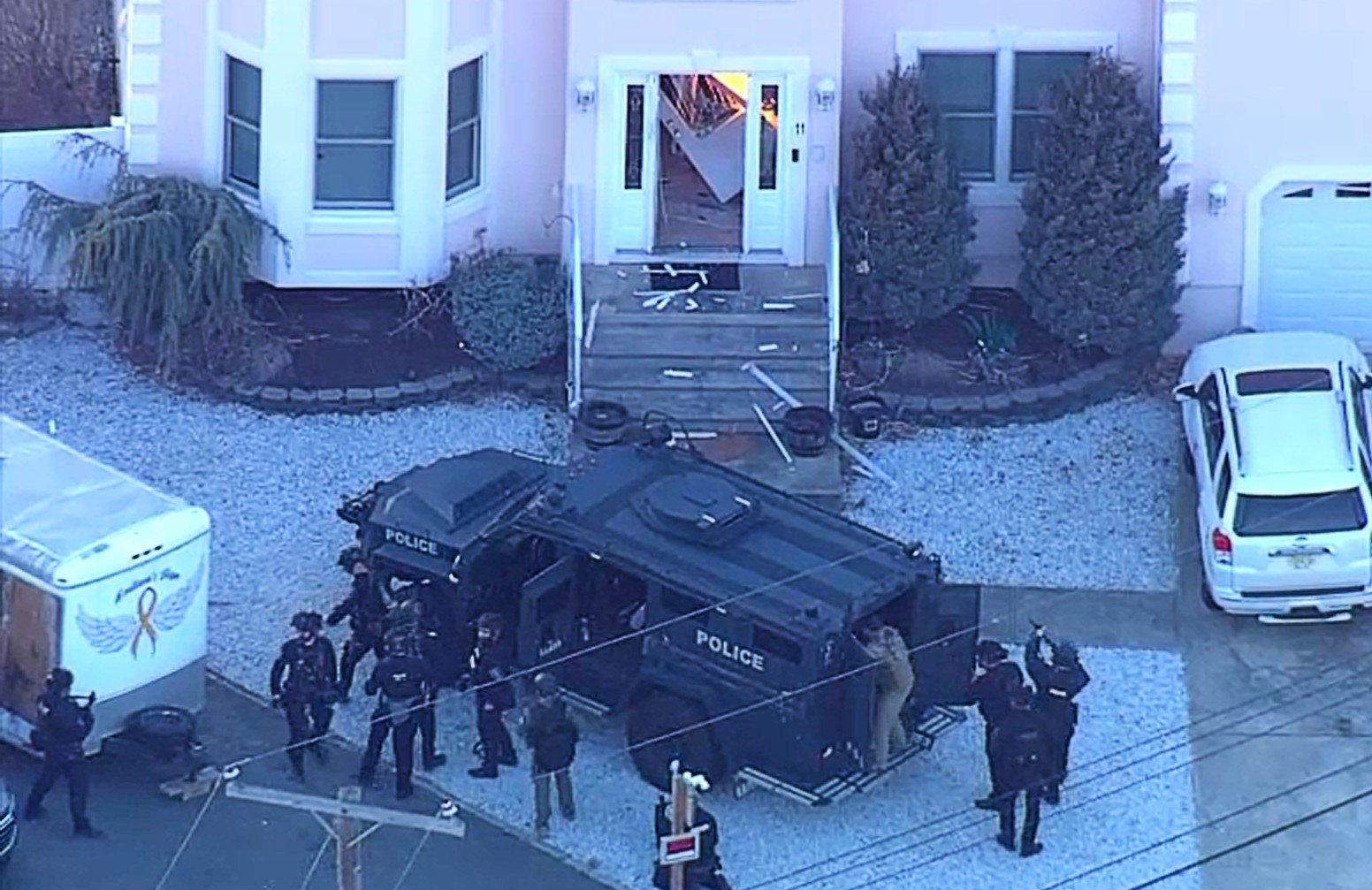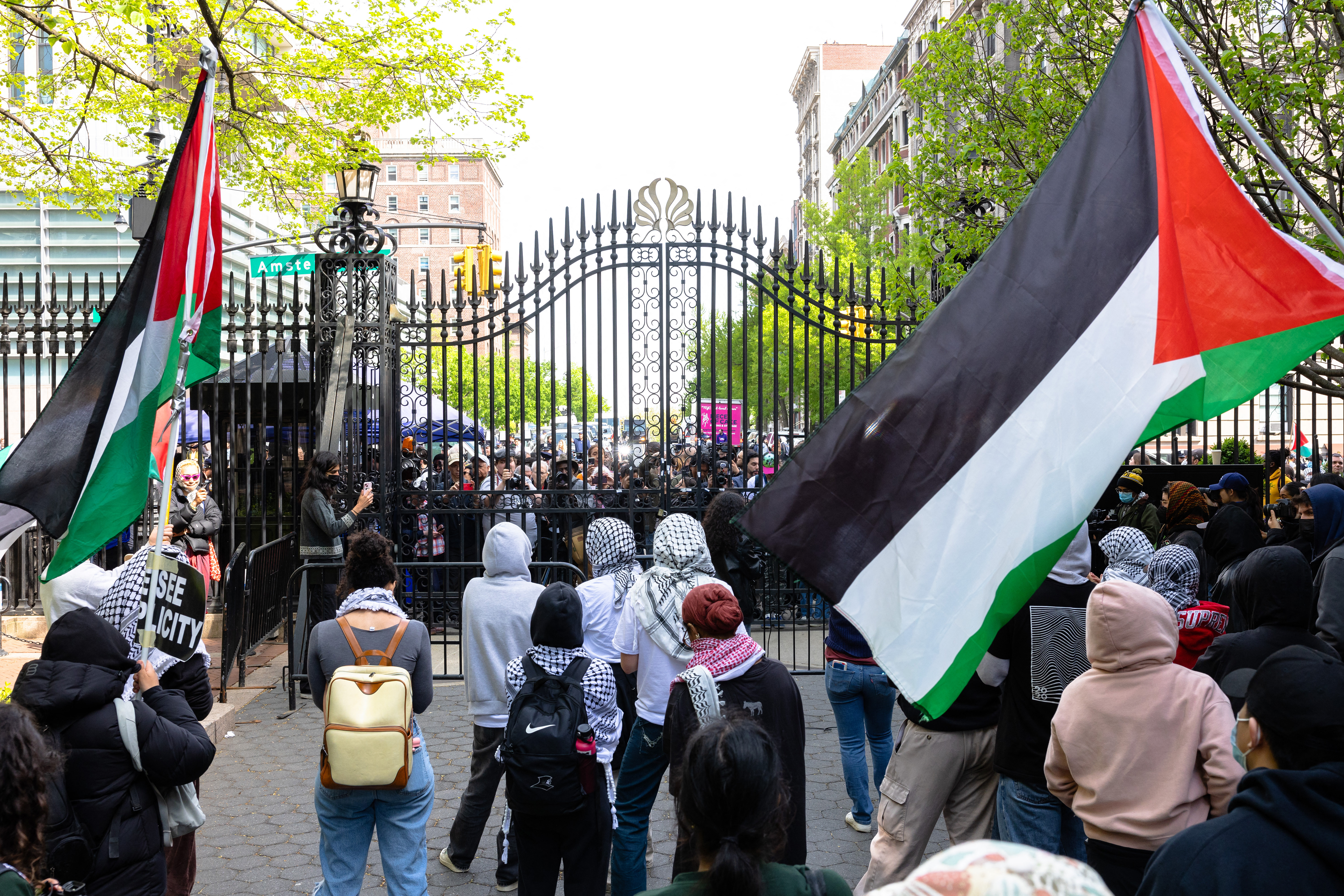NBC New York’s Ida Siegal reports.
New York Attorney General Letitia James has released her preliminary report on the protest-related incidents in New York City involving the NYPD from May 28 through June 7, the peak time when Black Lives Matter demonstrations were frequent throughout the five boroughs.
The report outlines the demographic breakdown of those arrested, scrutinizes some of the tactics used by officers and suggests that an independent commission be responsible for hiring and firing NYPD leadership and approving rule changes.
"I believe at my core, we need to bridge the undeniable divide between public and police, because trust is essential and critical to effective policing," Attorney General James said.
Specifically, the report says that of the 2,087 arrests in late May and early June, 44 percent were white, 39 percent were Black, and 13 percent were Latino.
The report says that the authority to hire and fire the NYPD commissioner should rest with a commission appointed to make those decisions. It says, “NYPD must also be required to seek public input on any rule it changes or implements that impacts the public.”
The recommendations also include a redesign of public safety and the role of police in society, suggesting, “minor offenses should be decriminalized with the goal of reducing negative contact with the police, particularly in communities of color.”
The Office of Attorney General says they have received over 100 calls to their hotline and 1,223 written submissions about the NYPD’s protest response from members of the public. They say they monitored and took reports from social media as well.
News

Several NYPD tactics are also being investigated and the Attorney General’s Office says they expect to make recommendations or remedial measures for any tactic that may violate the law.
Specifically, they say they are investigating the use of “kettling,” use of force including pepper spray and batons, and the treatment of the press and observers.
“While our investigation remains ongoing, after 30 days of intense scrutiny, it is impossible to deny that many New Yorkers have lost faith in law enforcement,” said James. “We must bridge the undeniable divide between the police and the public, and this preliminary report, and the recommendations included, is an important step forward."
The report also examined the NYPD’s hiring practices and while it noted that the NYPD is more diverse than other law enforcement agencies, it critiqued the agency’s lack of Black officers in the higher ranks.
It says, “white officers comprise about 45 percent of the department but receive 80 percent of the executive promotions.” Adding, “the NYPD has fewer Black patrol officers than it did in 1998, and the percentage of Black detectives has remained at approximately 16 percent for the last 30 years.”
Former Attorney General Loretta Lynch, who is advising the OAG’s probe of the protest response said, “as this investigation continues, so must the vital conversations around transparency and accountability,” while adding that “these are the most important conversations of our time.”
James said that the city and department need to work to ensure "there are mechanisms for public oversight, accountability, and input. Progress is possible, but, first, change and accountability are needed."

There was reaction to James' report from all ends of the political spectrum. Police Benevolent Association President Pat Lynch bashed the report, saying it tells "only one side of the story and delivers reheated proposals that have been part of the anti-police agenda for decades."
NYPD Deputy Commissioner Richard Esposito said the report is a "political and not an investigative document," and encouraged both police and elected officials to come together to "confront an solve the crisis at hand."
Meanwhile, Civilian Complaint Review Board Chair Fred Davie said it "welcomes the Attorney General's proposals to strengthen police oversight."
As for the city itself, the report seemed to miss the mark a bit, according to a spokesperson for Mayor Bill de Blasio.
“While we thank the Attorney General for her investigation and look forward to reviewing the report in full and working together to further reform policing in this city, we do not believe creating a commission to oversee the NYPD does that," the statement from the mayor's office read. "Change comes from accountability, something a commission lacks. If we want to continue moving forward, more bureaucracy is not the answer.”



